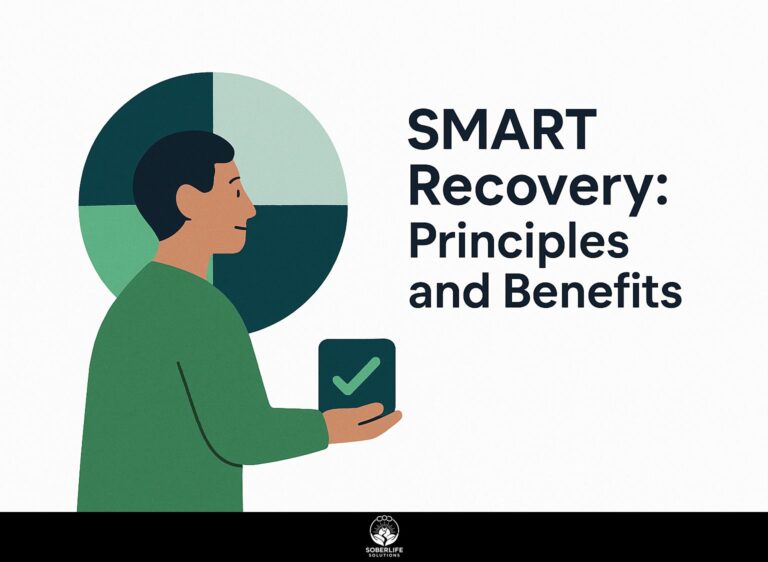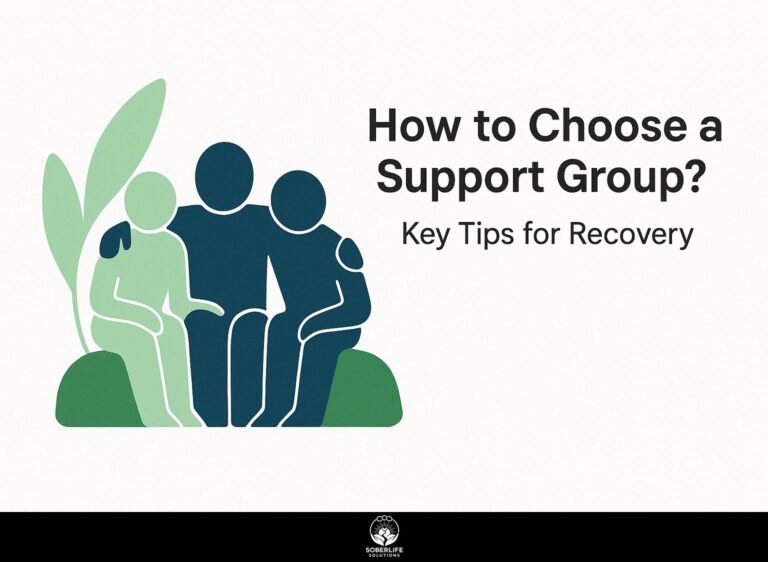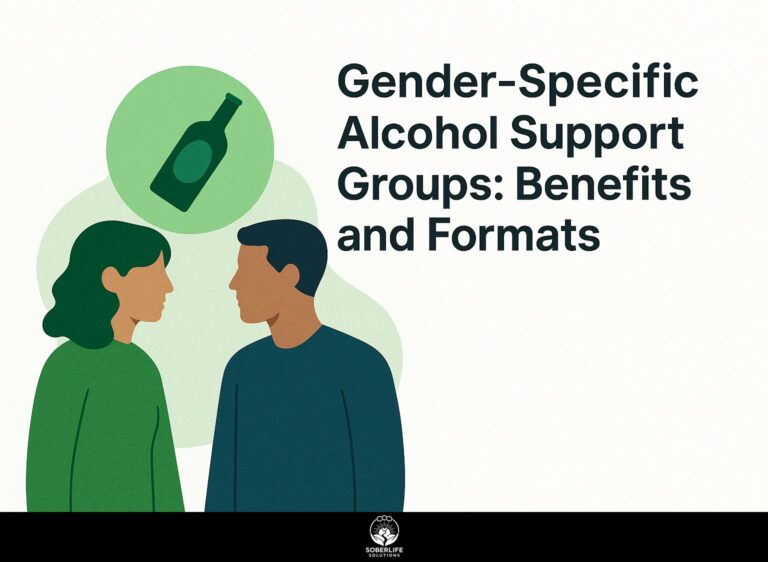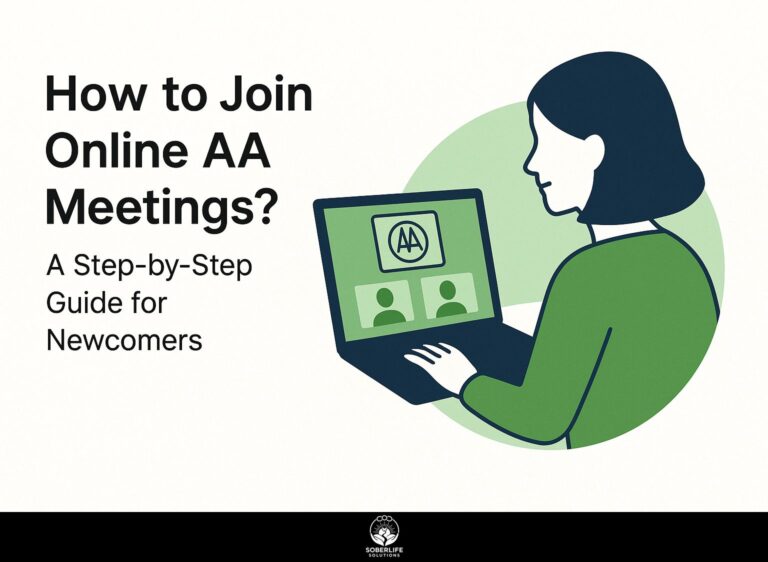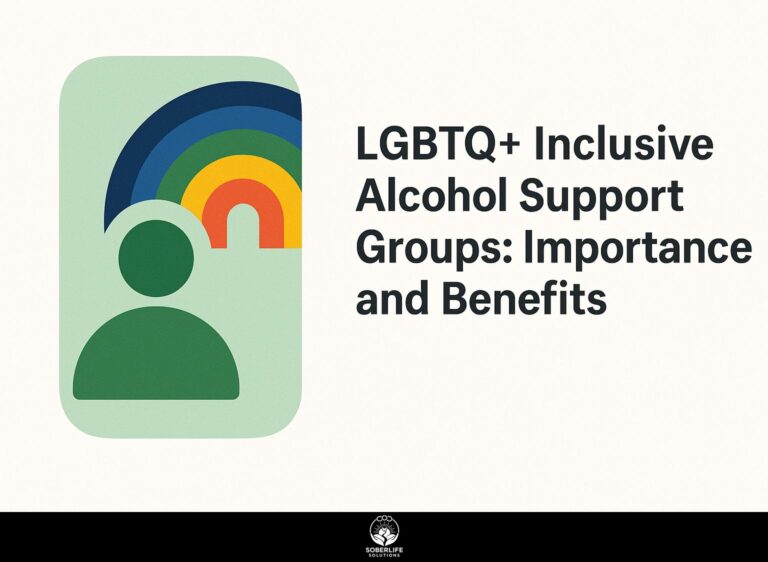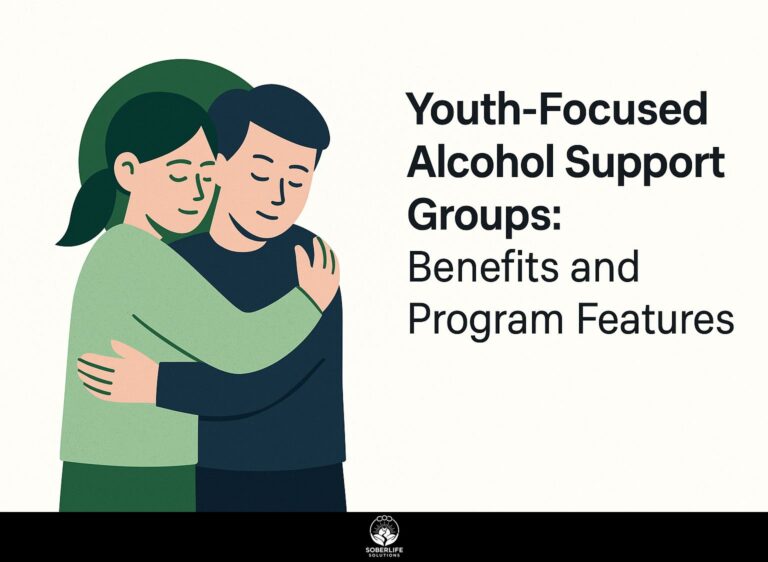Narcotics Anonymous: Meetings, Support, and Global Reach
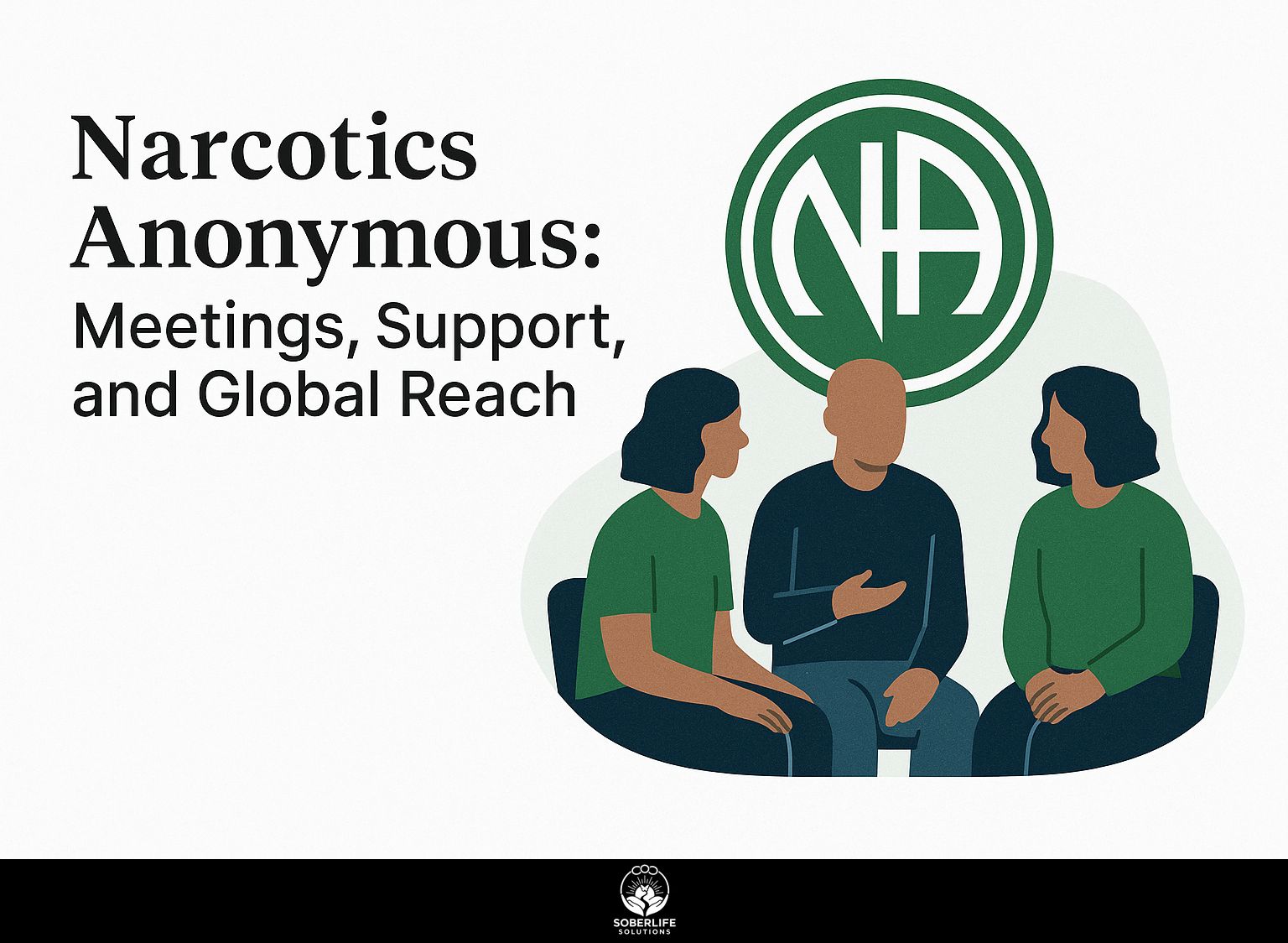
In the path of overcoming addiction, Narcotics Anonymous (NA) serves as a source of hope, especially important in places like the Islamic Republic of Iran. As part of a global network embracing the 12-step program, NA provides essential support for individuals battling substance use disorder. This article looks at how Narcotics Anonymous builds support networks and strength to overcome addiction. It includes information on their meetings, resources, and global reach, comparing it with Alcoholics Anonymous.
Key Takeaways:
History and Founding Principles
Established in 1953, Narcotics Anonymous grew out of Alcoholics Anonymous, emphasizing shared experiences as a method for overcoming addiction, particularly opioid addiction.
Important individuals like Jimmy Kinnon, who helped start the group, were central in forming NA’s focus on keeping members’ identities private and offering support among peers.
By the late 1970s, NA had established a foothold in various countries, with its international presence growing significantly by the 1980s. The organization promotes principles of recovery through shared experiences, helping members build supportive networks.
For instance, NA celebrated its first international convention in 1971 in California, marking a milestone in its expansion and the solidarity of its members globally. The roots of NA can be traced back to its origins in Alcoholics Anonymous, a development detailed in a Visual History of Alcoholics Anonymous, showcasing how shared stories have empowered communities over the decades.
Core Philosophy of Recovery
The philosophy of Narcotics Anonymous centers on the belief that addiction is a chronic disease, and recovery is possible through spiritual awakening and a supportive community. This view is supported by research from the Substance Abuse and Mental Health Services Administration (SAMHSA), which emphasizes the importance of understanding addiction as a disease.
The 12 Steps and 12 Traditions are key to NA, helping members in recovery and promoting togetherness. For instance, Step 1 emphasizes admitting powerlessness over addiction, which helps individuals acknowledge their struggles.
Many find strength in sharing personal stories during meetings, like one member who described how embracing these principles led to lasting sobriety. This welcoming environment creates a feeling of belonging, strengthened by the fellowship’s customs that focus on group safety and honesty in finances.
The NA framework guides individuals to choose healthier habits.
Types of Meetings
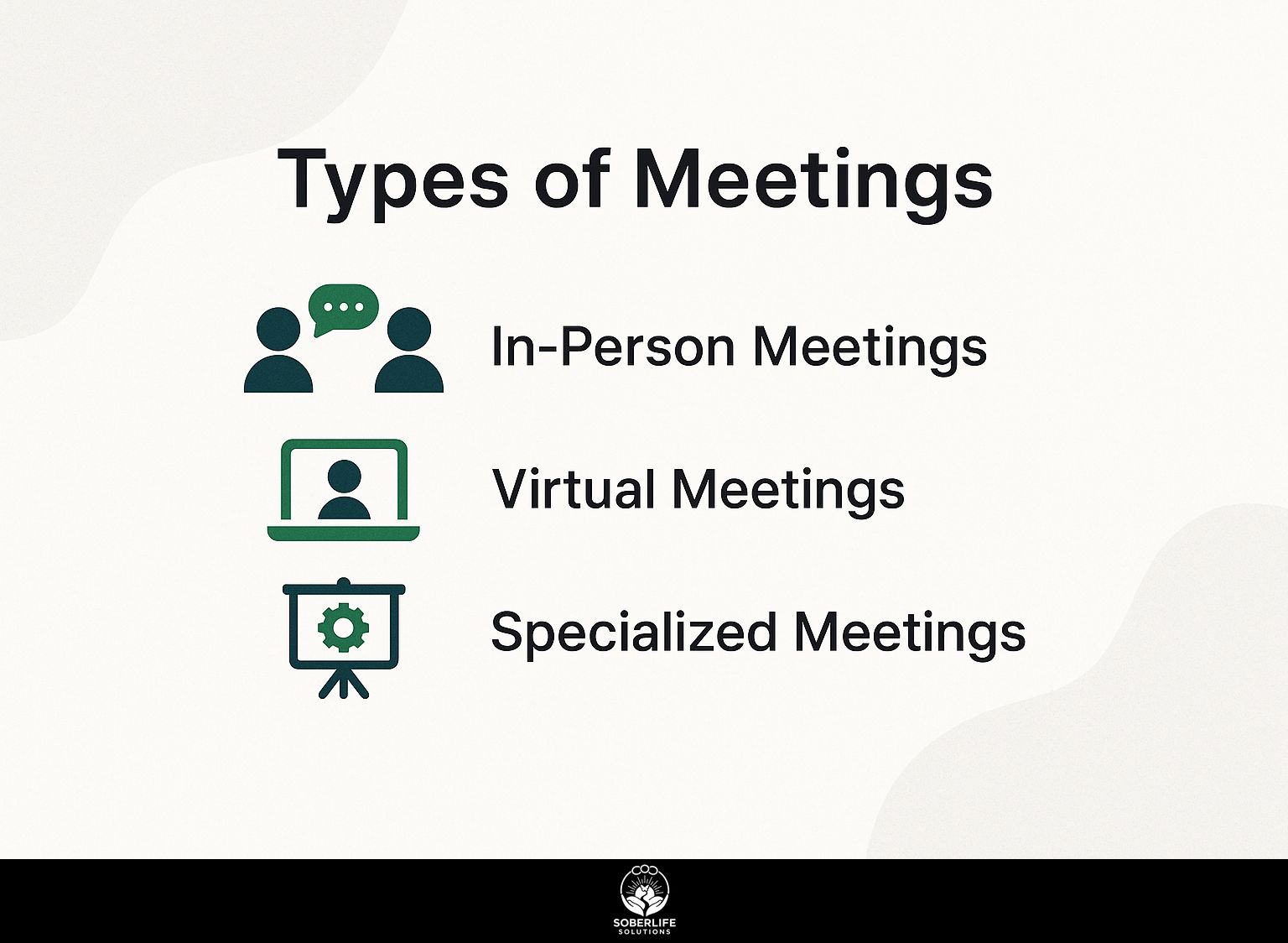
Narcotics Anonymous offers different types of meetings to meet the varied needs of its members, including regular in-person meetings and online support sessions. Curious about how to effectively find and access online meetings globally? This can further enhance your support network.
In-Person Meetings
In-person meetings are fundamental to Narcotics Anonymous, facilitating direct fellowship and connection among members who share similar battles with addiction.
These meetings usually have a set format to guarantee support and privacy. Usually, meetings begin with a moment of silence and a reading of the Twelve Steps.
Members often share their experiences in turn, promoting honesty and openness. In cities like Tehran and Shiraz, community centers and recovery facilities set up these meetings, making them easy to attend.
Online platforms complement these meetings, providing remote support where geographical constraints exist. Members can find local meetings via NA.org, specifying their cities for scheduled gatherings.
Virtual Meetings
Virtual meetings have emerged as a critical means for NA members to connect, particularly during the challenges posed by the COVID-19 pandemic, offering flexibility and access to support.
Platforms like Zoom and Microsoft Teams have become essential for facilitating these connections. Zoom, for instance, allows virtual meetings with up to 1,000 participants and offers breakout rooms for smaller discussions.
Many members have shared that these meetings provide important support and help build a sense of community. One member noted, ‘Joining a Zoom call made me feel less isolated and gave me a chance to share my experience with others.’
Regular meetings support ongoing progress and keep people motivated, particularly those with mobility issues.
Specialized Meetings
Narcotics Anonymous also offers meetings designed for particular groups and topics, such as opioid addiction and cultural changes in recovery.
For instance, some meetings focus specifically on age groups, like young adults, providing a space where participants can relate to each other’s experiences more closely.
Others may concentrate on gender, offering a unique environment for individuals to discuss issues around masculinity or femininity in recovery.
Communities in diverse regions, such as urban vs. rural settings, might adjust their meeting formats to reflect local cultures and challenges.
By using these specific formats, NA wants to build supportive spaces that connect with different personal stories.
Support Systems
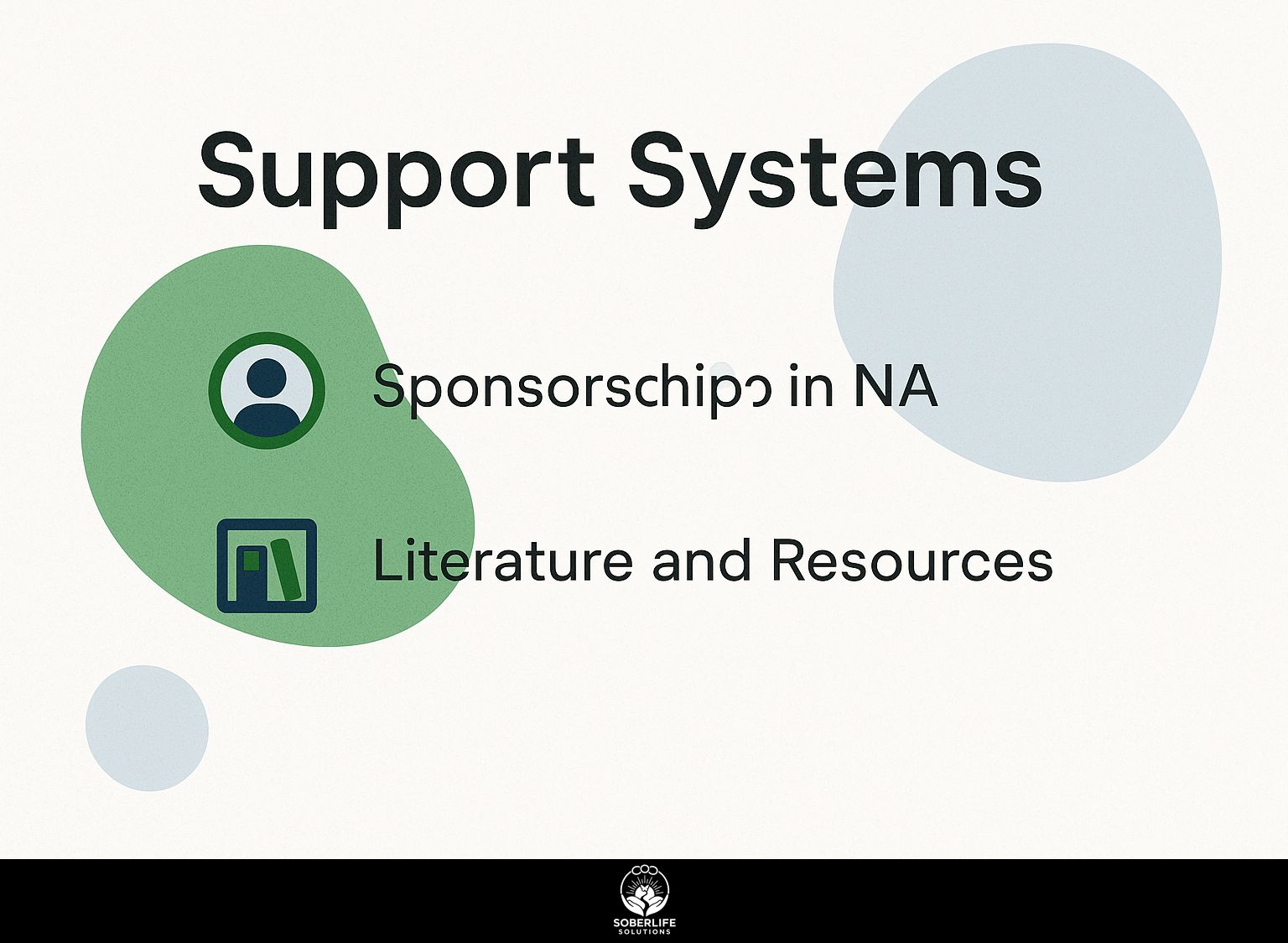
Support systems in Narcotics Anonymous are important for keeping members involved and helping them recover successfully.
They focus on the importance of having a sponsor and providing access to books and other helpful materials. For those seeking to enhance their recovery journey, exploring sober support systems that help can offer additional resources and insights.
Sponsorship in NA
Sponsorship is a key part of Narcotics Anonymous, offering newcomers advice and help from those who have been in recovery longer.
Sponsors are essential in guiding members through the difficulties of early recovery. They achieve this by sharing personal experiences, offering advice, and encouraging accountability.
For instance, a sponsor might guide their sponsee in attending meetings, setting recovery goals, or working through the steps. Studies show that individuals who engage with sponsors have a 70% higher likelihood of maintaining sobriety after one year compared to those who do not. This is supported by research from ResearchGate, which highlights the critical role sponsors play in enhancing the success rates of recovery efforts.
This helpful relationship encourages personal development and builds a feeling of belonging, which is important for lasting recovery.
Literature and Resources
Narcotics Anonymous provides many books and materials, including the main ‘Basic Text’ and different pamphlets focused on topics such as deaths related to opioids.
These resources are important for learning about substance use disorder (SUD) and ways to recover. Notably, many of these materials are available in Farsi, increasing accessibility for those in Iran.
For example, the ‘Basic Text’ explains the 12-step process, while pamphlets like ‘Am I an Addict?’ help individuals identify their struggles.
Online platforms such as na.org provide downloadable literature, enhancing outreach. These resources help with learning languages and aid in education and recovery for people who speak Farsi.
Global Reach of Narcotics Anonymous
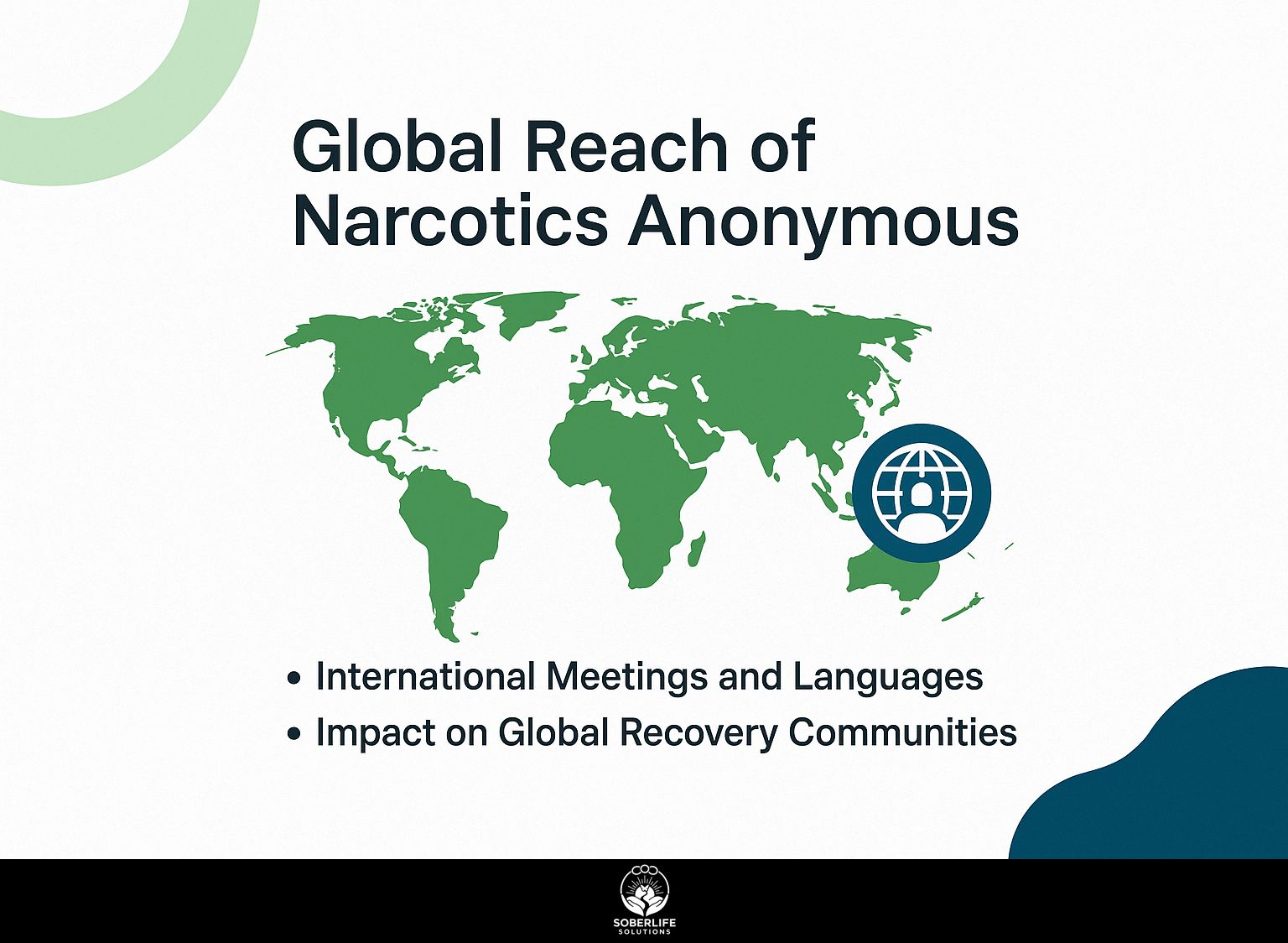
Narcotics Anonymous is active worldwide. It holds meetings in various countries, welcoming people from diverse backgrounds and languages to help them recover.
International Meetings and Languages
International meetings of Narcotics Anonymous showcase the organization’s commitment to inclusivity, with resources available in multiple languages, including Farsi for members in Iran.
Meetings in cities like Tehran and Shiraz face unique challenges, such as cultural stigma around addiction. To overcome these barriers, organizers often collaborate with local community leaders to create a supportive environment.
They use social media platforms like Telegram to share information quietly, reaching more people. Offering books translated into Farsi helps people learn and shows respect for cultural details, making everyone feel welcomed.
These changes make it easier for everyone to participate and feel comfortable.
Impact on Global Recovery Communities
Narcotics Anonymous has a strong effect on recovery groups around the world, encouraging people to support each other and heal together in different cultures.
For example, in Japan, people change the 12-step program to include Zen ideas, encouraging mindfulness during the recovery process.
In South Africa, local chapters address the unique challenges posed by systemic poverty and substance abuse by creating outreach programs that provide education and resources.
The use of online platforms has allowed NA to reach secluded individuals in regions where physical meetings are scarce, providing virtual support groups.
These changes show a flexible system that aligns with the unique needs of different communities around the world.
Challenges and Criticisms
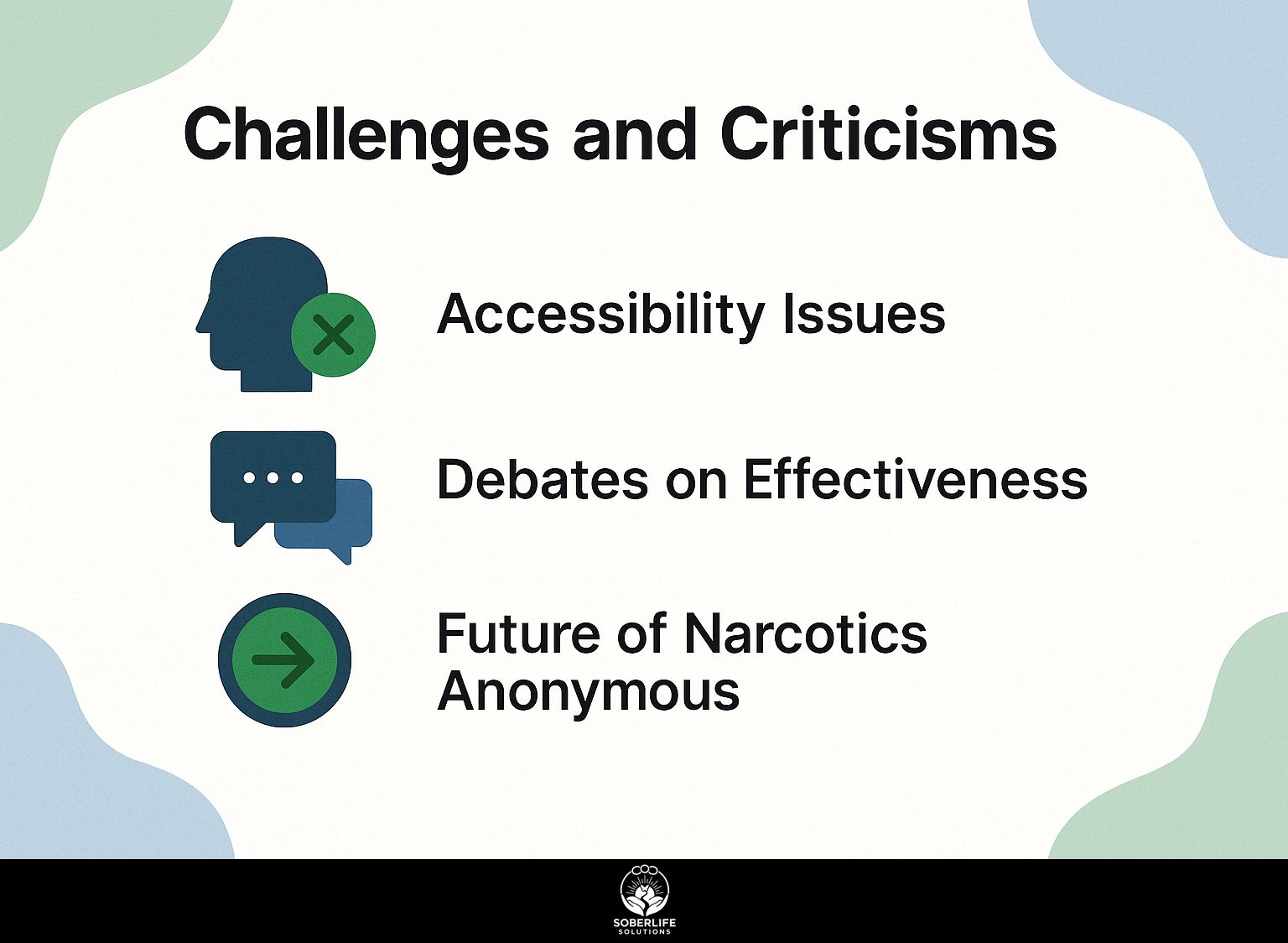
Narcotics Anonymous has had successes, but it also faces problems and criticisms that could hinder its ability to offer effective recovery support.
Accessibility Issues
Accessibility remains a significant concern for Narcotics Anonymous, impacting demographic participation and overall recovery outcomes.
Geographic limitations significantly affect attendance, with rural areas often lacking NA meetings. A survey indicated that 43% of individuals living in these regions reported difficulties in accessing meetings.
Economic factors, such as transportation costs and unemployment, further restrict accessibility, especially among low-income individuals. Social prejudice about addiction can discourage people from attending; around 30% of possible participants feel judged by society, stopping them from getting help.
To overcome these challenges, NA is providing more online meetings, which can greatly improve access for those dealing with physical or social difficulties.
Debates on Effectiveness
The effectiveness of Narcotics Anonymous as a recovery tool is debated among professionals, with some advocating for its benefits while others call for a more evidence-based approach.
Observational studies indicate mixed results regarding NA’s impact. For example, a 2020 study found that 50% of participants reported significant improvements in sobriety after attending NA regularly.
On the other hand, another review showed that people who sought professional therapy had better results in the long run. Critics argue that NA’s focus on peer support lacks the rigor of clinical methodologies.
It’s essential to evaluate personal recovery needs; some may thrive in NA’s community-driven environment while others may benefit more from structured treatment programs. Using a mix of methods usually gives the best outcomes.
Future of Narcotics Anonymous
Narcotics Anonymous may begin using more technology and making changes to better help members recover.
For example, mobile apps like SAA (Smart Recovery App) can attract more users by offering options to locate meetings, monitor progress, and participate in group chats.
Integrating online webinars and virtual meetings can reach underserved communities, providing support regardless of geographical constraints. Programs like SMART Recovery have improved by offering online tools. This allows members to join when it suits them, helping more people who need recovery support.
These changes help make a welcoming setting for people as they heal.
Frequently Asked Questions
What is Narcotics Anonymous and what does it offer?
Narcotics Anonymous (NA) is a non-profit organization that provides support and resources for individuals struggling with drug addiction. It provides a network of meetings, books, and support from members who share their experiences and path to recovery.
What happens at a Narcotics Anonymous meeting?
At a Narcotics Anonymous meeting, individuals gather to support each other in their recovery from drug addiction. The meeting usually begins with a reading of the 12 steps and traditions, followed by members sharing their experiences, strength, and hope. There may also be discussions, speakers, and other recovery-focused activities.
Do I have to pay to attend a Narcotics Anonymous meeting?
Narcotics Anonymous meetings are free and available to anyone who wants help with their drug addiction. The organization is self-supporting, so members may contribute voluntarily to cover meeting expenses, but it is not required.
How can I find a Narcotics Anonymous meeting near me?
You can find a Narcotics Anonymous meeting near you by visiting the organization’s official website and using the meeting search tool. You can also reach out to your local NA helpline for information on meetings in your area.
Does Narcotics Anonymous have a global reach?
Yes, Narcotics Anonymous has a global presence, with meetings and resources available in over 130 countries. The organization has been helping individuals recover from drug addiction worldwide since 1953.
Can I attend a Narcotics Anonymous meeting if I am not an addict?
Yes, anyone is welcome to attend Narcotics Anonymous meetings, even if they are not an addict. However, be sure to respect the privacy and recovery of the members and attend the meetings with an open and accepting attitude.

